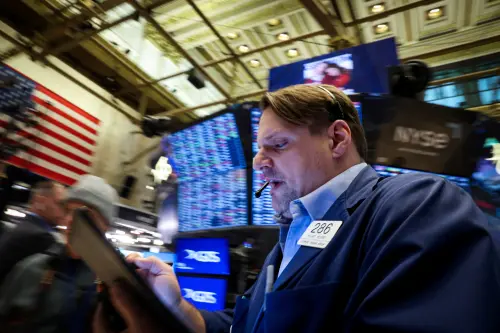ORLANDO, Florida, March 12 (Reuters) - TRADING DAY
Insight into the Global Market Trends
Investors found relief on Wednesday as February figures fell below expectations, leading to a rebound in the S&P 500 and Nasdaq from six-month lows, setting a positive tone for global markets on Thursday.
While the CPI inflation report took center stage, overshadowing the ongoing global trade tensions, with President Donald Trump announcing additional tariffs on EU goods, the retaliatory trade barriers already in place were highlighted.
The question now arises, how sustainable is this market uptick?
Key Market Developments today.
Japanese data for February indicated a 4.0% increase attributed to rising raw material costs. Additionally, major Japanese companies signaling significant – and in some instances, record-breaking – salary increments, fuel expectations for a potential interest rate hike by the Bank of Japan. Consequently, the 10-year JGB yield edged closer to Monday's 16-year peak.
Conversely, the Bank of Canada bucked the trend by lowering its key rate by 25 basis points to 2.75% on Wednesday, marking the seventh consecutive cut within nine months. However, concerns loom as Trump's trade disputes could spur inflation, raising challenges, as stated by BOC Governor Tiff Macklem.
Despite the Wall Street rebound on Wednesday, further gains are anticipated due to favorable short-term technical and momentum indicators. Notably, Truist's Keith Lerner points out that the S&P 500's 'Relative Strength Index' has entered 'oversold' levels for the first time since October 2023.
Nevertheless, lingering pressures on market volatility, investor sentiment, economic conditions, and risk appetite are expected to persist, compounded by Trump's unwavering stance.
Warnings from U.S. airline Delta and retail giant Walmart foreshadow heightened economic uncertainty affecting forthcoming earnings reports and economic data. This uncertainty may drive a shift from Wall Street to European or Asian equities, yet a pronounced U.S. economic slowdown or recession would have ripple effects on the global economy.
In the face of a potential economic downturn spurred by inflationary tariffs, the Fed's approach becomes intricate, straddling the need for rate adjustments amidst uncertain economic conditions.
Heightened tariffs could constrain the Fed’s policy options, complicating responses to the economic landscape. The path forward, navigating growth concerns, inflation uncertainties, and competitive market forces, remains challenging for policymakers.
As market signals point towards potential easing, the Fed must carefully weigh its decisions against the backdrop of evolving economic dynamics, emphasizing the delicate balance between addressing economic headwinds and managing inflation risks.
